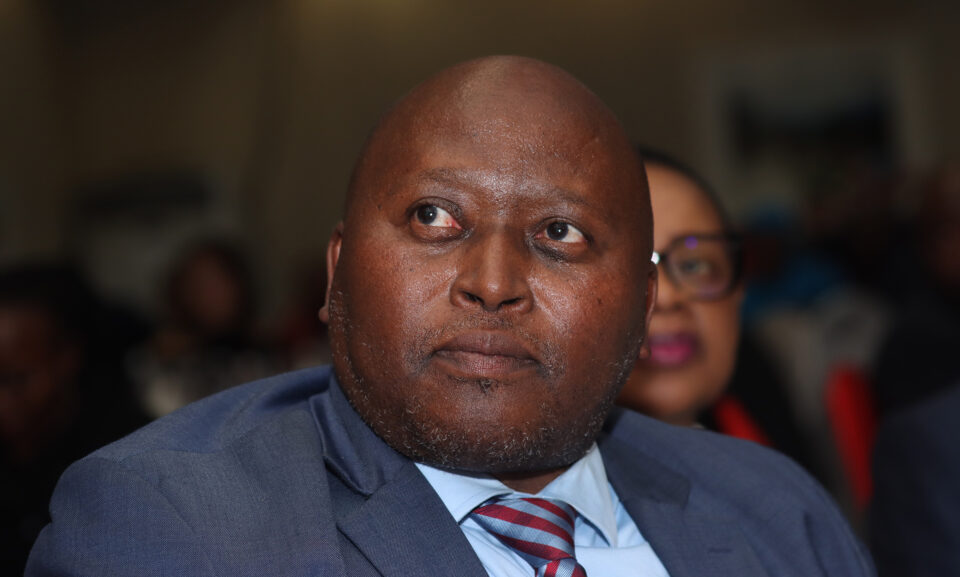Mohloai Mpesi
THE Minister of Trade, Industry and Business Development, Mokhethi Shelile, this week allayed mounting fears of two giant parastatals’ imminent closure, which would leave thousands jobless.
He was responding to questions in Parliament on behalf of the Minister of Finance and Development Planning, Dr Retselisitsoe Matlanyane.
All Basotho Convention (ABC) Proportional Representative (PR) Member of Parliament, Montoeli Masoetsa, had asked Finance Minister Matlanyane if she was aware of newspaper reports alleging that Lesotho Flour Mills (LFM) and Maluti Mountain Brewery (MMB) were close to ceasing operations.
He also wanted to know when the minister would make a statement in the House to allay the fears of workers whose jobs could be at stake at these companies.
Responding on behalf of Dr Matlanyane, Mr Shelile said the two companies — in which the government holds shares — were not shutting down.
The government collectively owns a 56.25 percent stake in MMB through the Lesotho National Development Corporation (LNDC) and the Privatisation Unit of the Ministry of Finance (at 51 and 5.25 percent, respectively).
The Lesotho Unit Trust holds 4.75 percent, while AB InBev Africa B.V., the MMB operator, owns the remaining 39 percent.
In the case of LFM, Seaboard Overseas Limited, an American company, holds a 51 percent stake, while the Government of Lesotho controls the remaining 49 percent.
In response to Mr Masoetsa’s question, Mr Shelile said the ministry was not aware of any imminent closure.
“It has not come to the recognition of the Ministry of Finance and Development Planning that these two institutions are on the verge of closing their services in the country. These institutions are Maluti Mountain Brewery (MMB) and Lesotho Flour Mills (LFM),” Mr Shelile said.
No dividends for 20 years
Mr Masoetsa then asked a supplementary question, enquiring whether LFM had ever paid dividends to the government.
“In his knowledge, when has Lesotho Flour Mills ever paid its dividends, given that Lesotho has shares in the company together with Seaboard? That company (Seaboard) has always been given responsibility to run the Lesotho Flour Mills, and it is supposed to be paying dividends to the government as a shareholder. The minister should explain . . . when has Seaboard ever paid dividends to the government of Lesotho as a shareholder?” he asked.
Mr Shelile replied: “An American company called Seaboard arrived in Lesotho in 1998 or 1997. Since their arrival until now, there has never been a time when they declared dividends”.
Democratic Congress (DC) PR legislator, ‘Mabafokeng Mpobole, asked Mr Shelile whether he had taken any initiative to investigate the matter since receiving the question, which he studied and prepared to present before the National Assembly.
“When the minister says it has not come to his recognition, yet this question came to him, he studied it and prepared how to answer it — all this time when the question was in his hands, what initiatives did he take to establish whether it is true that these companies are not closing, in order to assure the employees who fear losing jobs?
“What responsibility did he take when he said it did not come to the recognition of the ministry, yet people fear losing jobs?” she asked.
However, Speaker of the National Assembly, Tlohang Sekhamane, cautioned Ms Mpobole to be mindful of her language when addressing other lawmakers.
“We should talk to each other with respect. When you say to the minister, ‘now when he comes to this House and tells us that . . .’ that language is not respectful. You’re asking a good and valid question: to say the minister has been asked a question some time ago, stating that there are allegations that jobs might be lost, but up to now have you tried to go and find out whether these allegations are baseless or not?
“It is a good question, but the way you address it, it’s like you are addressing a small child. It does not look like you are addressing an elderly person.
“Minister, I think her question is fair. She says even if it did not come to the recognition of the ministry, but when you are asked, did you go and find out whether these are baseless allegations?”
Mr Shelile reiterated that the companies were not shutting down, adding that just because Seaboard had expressed interest in selling its shares does not mean LFM was closing.
“The question talks about allegations. As government, we have a role that we play in administration of these companies directly. Government has 49 percent of shares in Lesotho Flour Mills . . . We cannot talk about allegations; we talk about what we know, and these firms are not closing.
“But on Lesotho Flour Mills, the fact is that the American company asked to sell its shares and leave. That does not mean the Lesotho Flour Mills is closing, it is just a change of shareholders. We know these issues directly,” he said.
In May this year, media reports said Seaboard Overseas Limited, the US company with a 51 percent controlling stake in FML was preparing to leave the milling company over non-viability woes.
The reports also suggested LFM was tottering towards closure due to poor performance, further alleging that for the past two decades the parastatal had failed to declare dividends to the other shareholder, the government.

